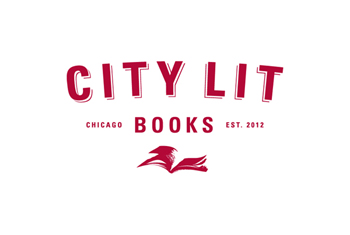The Lit & Luz Book Club/Club de lectura was created and organized by Community & Literary Arts Coordinator Miguel Jiménez as an opportunity for Chicagoans to read and discuss some of today’s most exciting contemporary Mexican authors in both Spanish and English. The selected texts are from authors headlining the 2019 Lit & Luz Festival, providing an opportunity in October for members to meet with and hear from the authors directly.
This year’s titles are Verónica Gerber Bicecci’s Empty Set (in English translation by Christina MacSweeney), Sara Uribe’s Antígona González (in Spanish and in the English translation by John Pluecker), and Luis Alberto Urrea’s House of Broken Angels.
Club de lectura Lit & Luz fue creada por el Coordinador de Enlace Comunitario, Miguel Jiménez, para ofrecer una oportunidad en la que todos los residentes de Chicago podrán leer algunos de los más emocionantes textos literarios contemporáneos de hoy día. Los miembros leerán y discutirán los trabajos de escritores Mexicanos que estarán presentándose en el Festival Lit & Luz 2019. Luego de leer el trabajo de estos escritores, los miembros del club de lectura podrán conocerles en una reunión intima que se llevará a cabo durante el festival.
Los libros seleccionados para este año son Emptry Set por Verónica Gerber Bicecci (traducida al inglés por Christina MacSweeney), Antígona González por Sara Uribe (en el español y en la edición traducida al inglés por John Pluecker) y House of Broken Angels por Luis Alberto Urrea.
Empty Set by Verónica Gerber Bicecci (Mexico)
Translated from the Spanish Christina MacSweeney (Coffee House Press)
Meeting
July 25th, 7 p.m.Volumes Bookcafe, 1474 N. Milwaukee Ave.About the Book
A Venn diagram for love, Bicecci’s narrator traces and reconstructs her relationships using geometry, ice cores, and tree rings.
How do you draw an affair? A family? Can a Venn diagram show the ways overlaps turn into absences? Can tree rings tell us what happens when mothers leave? Can we fall in love according to the hop-skip of an acrostic? Empty Set is a novel of patterns, its young narrator’s attempt at making sense of inevitable loss, tracing her way forward in loops, triangles, and broken lines.
Reviews
“In Empty Set, Verónica Gerber Bicecci has found a seemingly new and fascinating way to tell and show us a vital story of modern loneliness, exile, and imagination.” —Words Without Borders
“Gerber Bicecci’s experimental novel takes a unique approach to topics like debilitating loneliness, political repression, and epistemological crises.” —Publishers Weekly
“A smart story of love and loss with a clever mix of narrative techniques, Empty Set may be an antidote to the current climate of despair.” —Los Angeles Review of Books
ABOUT THE AUTHOR & TRANSLATOR
Verónica Gerber Bicecci is a visual artist who writes. In 2013 she was awarded the third Aura Estrada Prize for Literature. She is an editor with Tumbona Ediciones, a publishing cooperative with a catalog that explores the intersections between literature and art.
Christina MacSweeney was awarded the 2016 Valle Inclán Translation Prize for her translation of Valeria Luiselli’s The Story of My Teeth, and her translation of Daniel Saldaña París’s novel Among Strange Victims was a finalist for the 2017 Best Translated Book Award.
House of Broken Angels by Luis Alberto Urrea (Little, Brown and Co)
Meeting
August 29th, 6:30 p.m.City Lit, 2523 N. Kedzie Blvd.About the book
In his final days, beloved and ailing patriarch Miguel Angel de La Cruz, affectionately called Big Angel, has summoned his entire clan for one last legendary birthday party. But as the party approaches, his mother, nearly one hundred, dies, transforming the weekend into a farewell doubleheader. Among the guests is Big Angel’s half brother, known as Little Angel, who must reckon with the truth that although he shares a father with his siblings, he has not, as a half gringo, shared a life.
Across two bittersweet days in their San Diego neighborhood, the revelers mingle among the palm trees and cacti, celebrating the lives of Big Angel and his mother, and recounting the many inspiring tales that have passed into family lore, the acts both ordinary and heroic that brought these citizens to a fraught and sublime country and allowed them to flourish in the land they have come to call home.
Teeming with brilliance and humor, authentic at every turn, The House of Broken Angels is Luis Alberto Urrea at his best, and cements his reputation as a storyteller of the first rank.
Reviews
“The House of Broken Angels is a love song to the Mexican-American family.” —Time
“Exuberant...Urrea has written a vital, vibrant book about the immigrant experience that is a messy celebration of life’s common joys and sorrows.” —Publishers Weekly
“Epic . . . Rambunctious . . . Highly entertaining . . . Sorrowful and funny . . . Cheerfully profane . . . The quips and jokes come fast through a poignant novel that is very much about time itself . . . A powerful rendering of a Mexican-American family that is also an American family.” —Viet Thanh Nguyen, New York Times Book Review
Photo: Joe Mazza, Brave Lux
About the Author
A finalist for the Pulitzer Prize for his landmark work of nonficiton The Devil’s Highway, Luis Alberto Urrea is also the bestselling author of the novels The Hummingbird’s Daughter, Into the Beautiful North, and Queen of America, as well as the story collection The Water Museum, a PEN/Faulkner Award finalist. He has won the Lannan Literary Award, an Edgar Award, and a 2017 American Academy of Arts and Letters Award in Literature, among many other honors. Born in Tijuana to a Mexican father and American mother, he lives outside of Chicago and teaches at the University of Illinois-Chicago.
Antígona González by Sara Uribe
Translated from the Spanish by John Pluecker (Les Figues Press)
Meeting
September 23, 6:30 p.m.Pilsen Outpost, 1637 W. 18th St.About the Book
What is a body when it’s lost?
Antígona González is the story of the search for a body, a specific body, one of the thousands of bodies lost in the war against drug trafficking that began more than a decade ago in Mexico. A woman, Antígona González, attempts to narrate the disappearance of Tadeo, her elder brother. She searches for her brother among the dead. San Fernando, Tamaulipas, appears to be the end of her search.
But Sara Uribe’s book is also a palimpsest that rewrites and cowrites the juxtapositions and interweavings of all the other Antigones. From the foundational Antigone of Sophocles passing through Griselda Gambaro’s Antígona furiosa, Leopoldo Marechal’s Antígona Vélez, María Zambrano’s La tumba de Antígona all the way to Antigone’s Claim by Judith Butler. And this book’s writing machine includes testimonies from family members of the victims and fragments and fragments from news stories that provide accounts of all these absences, all the bodies that we are missing.
Reviews
“As the families of so many disappeared throughout Mexico, Sara Uribe’s Antígona González roams a convulsed land looking for the body of Tadeo, her brother. As urgent as it is delicate, Antígona González summons the dead and brings them to our tables.” —Cristina Rivera-Garza
“This brilliant and moving book revives the story of Antigone to confront the horrifying violence shrouded within the present landscape – Antigone, a solitary figure before the law, facing certain death, who invokes a way of resistance at once textual and political. Sophocles’ play resonates throughout this act of poetic testimony and fierce interpretation, making emphatic graphic marks precisely where there is no trace of loss.” —Judith Butler
“Sara Uribe’s Antígona González reads as if written by the Emily Dickinson of Tamaulipas in response to the loss and violence occurring all around her – it is that intimate, honest, unaffected, intelligent, urgent, innovative, spare, and beautiful.” —Francisco Goldman
Photo: @meterphoto
About the Author and the translator
Born in 1978 in Querétaro, Sara Uribe has lived in Tamaulipas since 1996. She graduated with an undergraduate degree in Philosophy; she received the Carmen Alardín Regional Poetry Prize in 2004, the Tijuana National Poetry Prize in 2005 and the Clemente López Trujillo Poetry Prize in 2005. She has been a grantee of the Fondo Nacional para la Cultura y las Artes (2006-2007) and of the Programa de Estímulos a la Creación y Desarrollo Artístico (2010 & 2013). She has published Lo que no imaginas (2005), Palabras más palabras menos (2006), Nunca quise detener el tiempo (2008), Goliat (2009) and Siam (2012). Her poems have appeared in periodicals and anthologies in Mexico, Peru, Spain, Canada, the United Kingdom and the United States.
John Pluecker is a language worker who writes, translates, organizes, interprets, and creates. In 2010, they co-founded the transdisciplinary collaborative Antena Aire and in 2015 the local social justice interpreting collective Antena Houston. JP’s undisciplinary work is informed by experimental poetics, language justice, radical aesthetics/politics, and cross-border/cross-language cultural production. They have translated numerous books from the Spanish, including most recently Gore Capitalism (Semiotext(e), 2018) and Antígona González (Les Figues Press, 2016). JP’s book of poetry and image, Ford Over, was released in 2016 from Noemi Press. More info at www.johnpluecker.com and www.antenaantena.org.
Find the titles at these participating
bookstores:
City Lit Books, 2523 N Kedzie Blvd, Chicago, IL 60647Volumes Bookcafe, 1474 N. Milwaukee Ave, Chicago IL 60622For questions about groups, content, or other, contact Miguel Jiménez, migueljimenezpaz@gmail.com.















